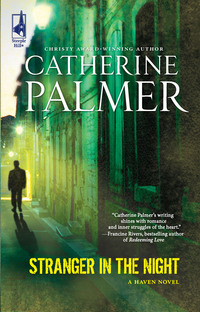
Полная версия
The Briton
“Christ?” she said. “Then you are a Christian?”
“Indeed I am. This party travels to London, that I may join believers in obedience to His Spirit through service to Jesus. Those who live at the monastery make it our mission to preach the good news of the Kingdom of God.”
“Strange words,” Bronwen said. “I have heard tales of Christians. Is it true you worship only this one God and give no homage to the spirits of the trees and mountains?”
Martin smiled. “God fashioned the earth and all that dwells upon it. We choose to worship the Creator rather than His creation.”
“But surely your God has a dwelling place?”
“He abides in the heart of every true believer.”
“Only in the heart of man? Why should this Spirit not also wish to inhabit the rest of His creation? Surely man is not solely blessed with the presence of the gods.”
As the two spoke, one of Jacques’s men rose and carried a slab of venison to him. Without pausing in the conversation, Bronwen turned and peered into the corner where he sat. She was opening her mouth to speak when Martin handed her a bowl filled with chunks of meat and steaming vegetables. He gave her a brief nod and then turned to Enit with another bowl.
“Putting the feast on the board is the best invitation,” the older woman cackled.
Bronwen smiled at her nurse before returning to Martin. “The venison is tender and succulent, while the turnips and onions melted away like butter. I daresay I have never tasted such a fine meal or been so warm. Again, sir, we thank you for sharing your dinner with us.”
“I am honored to be of service, my lady,” Martin replied.
Haakon, the Norseman who had been consuming his portion in silence, tossed an onion over his shoulder before speaking up. “Tell me, holy man, where did you slay this deer?”
Martin and the others stopped their eating to eye the Viking. Jacques stiffened. Setting his meal aside, he again touched his knife. Clearly Martin’s generosity meant nothing. Haakon wanted to know if the deer had been poached from his father’s land.
“Where Christopher bought his coat, as they say, sir,” Martin answered.
Haakon glowered at him. “I asked you a question, man. I expect an answer.”
“We got the deer where ’twas to be had.”
The burly Viking stood and pointed a thick forefinger at Martin. “You play games with me, do you? That deer belonged to the lands of Olaf Lothbrok, and you—”
“And you have kindly fed his wife and her attendant,” Bronwen cut in. “We appreciate your generosity, Martin. Do we not, Haakon? You, too, have filled your belly. Would you now turn against your provider?”
Wife? Jacques could hardly believe he had heard aright. Was it possible she had wed the old man already? Teeth clenched, he drew his knife from its scabbard and rose on one knee.
Haakon was glaring at Bronwen, as she stood to address him across the fire. “I am your mistress now, and I command you to apologize to this gentleman.”
“I obey no command given by a woman,” Haakon snarled. “I protect my father and his possessions, and I comply only with his requests.”
The woman lifted her chin. “I am the chattel of Olaf Lothbrok—not only his possession but his chosen wife. Obey me now, as you will in the future. I insist upon it.”
Jacques understood the deep significance of this confrontation. Though the custom of both Briton and Viking gave authority to men, Bronwen had chosen to assert her own station as Haakon’s superior. She must not relent. Failing to defend her claim would put her forever under the man’s domination and control.
“Apologize, Haakon,” she repeated. “I command you.”
The Viking started to speak, but he held his tongue as he glared at Bronwen. She maintained her cold, steady gaze. Finally, he turned to Martin and muttered, “As this woman commands, I apologize for questioning you about the animal.”
Martin nodded. “No offense taken.”
Bronwen did not acknowledge Haakon’s obedience. Instead, she bent down to help the old nursemaid to her feet. As the young woman gathered their now-dried woolen cloaks, she cast a glance at Jacques, who still crouched in deep shadow. Though he fully expected her to confront him with as much fervor as she had the Viking, she took Enit by the elbow, stepped to another corner of the small room and began arranging a sleeping pallet.
Jacques sheathed his knife again and picked up his dinner. In time, his men finished their meal and began to settle around the room. He was glad they had found this shelter near the beach, for all were weary from the day’s journey. Jacques watched as Haakon took a place near the door and cast a final hostile glance at Bronwen. She turned her back on him and lay down beside her nurse, who soon was snoring softly.
Exhausted, Jacques leaned his head against the wall. He was tired, but he would not sleep. Though silence had fallen over the gathering, he knew that darkness often brought misdeed.
Unable to sleep, Bronwen considered the fate of the ship that had brought her to this place. Vikings were legendary seamen and rarely lost a vessel. She had no doubt that Lothbrok would return for his wife and son—perhaps even by morning. Was he as brash and spiteful as his son? The thought sent a curl of dread through her stomach.
As the icy rainfall quieted from a roar to a gentle patter, Bronwen turned her thoughts to Martin and his kindness toward her and Enit. What was the nature of this God he served, and what powers could He offer to faithful worshippers? Did Martin tremble at the power of his God, or was this God the cause of his smiles and humility?
Recalling the festivals, rituals and sacrifices of her people, Bronwen considered the questions that filled her mind. As the hours passed, she came to realize that she didn’t know enough to pass judgment. It was a mystery—but one she wished to explore.
And the man in the corner? Could he truly be Jacques Le Brun? She had studied him in the firelight, but she couldn’t be certain. It seemed impossible that they should meet again so soon. And if he recognized her, why not identify himself? No, it could not be the man. Yet as dearly as she wished to wash away her memories of Le Brun, she was powerless.
Late in the night, the rain ceased, leaving only the soft sound of waves breaking on the beach. Unable to rest her mind or even stretch her legs in the cramped, smoky hut, Bronwen decided to walk down to the sea. Perhaps she would see the Viking snekkar in time to steel herself for another meeting with her new husband. Rising, she slipped the mantle over her shoulders. The man in the corner dozed with his head against the wall. And Haakon, lying next to the hut’s door, was snoring as she edged past him and stepped out into the night.
The dense bank of clouds had rolled back, leaving a cover of newly washed stars. Bronwen dug her bare toes into the wet sand and shook out her long hair as she wandered toward the water’s edge. Some years ago, her father had employed a tutor, a man who once had been steward to a Norman family in the town of Preston. He had taught Bronwen and Gildan to speak French, to learn how their enemy viewed the world, and to understand some sense of the characteristics of the Christian God.
Much of what the tutor had told the girls was either laughable or revolting, but his explanation of the natural world fascinated Bronwen. On this night, she could see that nature was in balance again. Earth, fire, water, air—the four elements making up everything on the earth—must always remain in harmony, the tutor had said. When one asserted itself, the others brought it back into order.
So it was with kings, lords and serfs. It would take a mighty king indeed to subdue all of England and bring it under control. Bronwen had heard that Matilda had such a man in mind—her son Henry Plantagenet—to rule England if she prevailed against King Stephen in their civil war. But Henry was a Norman to the core, and Bronwen doubted he had any interest in the island to the north of his French homeland. She didn’t care what the Normans did anyway. As long as they kept their distance from Amounderness and Rossall Hall.
As she strolled, Bronwen came upon a log washed up by the storm. But as she sat, her eye caught a movement down the beach near the hut. If she had wakened Haakon as she’d left the hut, he could have revenge in mind. Heart pounding, she slipped behind the log, hoping its shadow would conceal her.
As she watched the figure draw nearer, Bronwen saw it was Haakon. She closed her eyes and prayed to the gods—even to Martin’s one God—that she might be spared. How foolish she had been to leave the hut unarmed. Yet, even if she had a weapon, she could never hope to physically overcome a strong, well-trained warrior. Would the man be so foolish as to harm his father’s wife? Of course. He could kill her and slip back into the hut. All would believe him innocent.
She heard the Viking’s footsteps crunching the sand near the log, and then he stopped. “So, Bronwen the Briton, we meet again in the dark of night. Is it your habit to wander beaches alone and without protection?”
With a gasp, she sat up. “Le Brun? But I thought you were…someone else.”
“Your Viking protector? But you have no fear of that man, do you? At dinner you were quite impressive.”
“And you—crouching in the corner like a mouse? Do you fear him?”
“I fear only God.”
“So, you follow your friend to London to pay homage to this God so favored by Normans. Or are you still spying out Amounderness?”
The man chuckled but made no answer. “You must call me Jacques. We know each other too well for formalities. And I see you have put my mantle to good use. I’m glad of that. Now perhaps you’ll tell me why you attempt to hide when the stars illuminate everything on this beach.”
Bronwen stood and unclasped the cloak. “Stars reveal the future and the present. But they don’t show your face, sir. You are the one who hides, not I. Here—take your mantle. I want nothing to do with a scoundrel and a spy.”
Jacques caught the hood of the cloak before it could slip to the ground. “Keep it, my lady. I beg you.”
“No, I—”
“Please honor my request.” He drew the garment around Bronwen’s shoulders again and fastened the clasp at her neck. “I am not ready to collect it just yet. We are met untimely.”
His fingers lingered for a moment at the clasp as he looked into her eyes. Then he drew away, took a place on the log and stretched out his long legs. Reaching up, he grasped Bronwen’s hand and gently pulled her down beside him. She settled herself at some distance, wary of the Norman yet grateful for the warmth of his mantle.
“Your husband is at sea,” he said. His voice was deep, and his eyes searched the horizon as he spoke. “When were you married?”
“This morning. Soon after the rite, we left Rossall Hall in haste because of the storm.”
“Little good it did. And now you spend your wedding night sitting on a wet log.”
“It is of no consequence to me. My husband and I have never spoken a single word. Our vow is all that unites us.”
“A vow has great power, Bronwen.” He glanced at her. “May I call you by name?”
“As you wish. It matters not, for I don’t imagine we shall meet again after this night.”
Jacques leaned back against a twisted branch and folded his arms across his chest. “You were imprudent to leave the safety of the hut. You have no protection.”
“I assumed the men were sleeping. Clearly I was mistaken.”
“A leader of men is never fully at rest, even in his own home. When I saw you leave, I feared for your safety.”
Bronwen clasped her hands together, uncomfortable at his words. “You are leader of your party, then. But who do you serve—Matilda? Stephen? Or perhaps the Scot, David, who presumes to claim Amounderness by virtue of Stephen’s treaty.”
“You know more of politics than a woman should, madam. Perhaps you had best tend to your new home and leave such intrigues to your husband.”
Annoyed, Bronwen stood. “A wise woman knows as much of politics as any man. You will recall that my father willed his landholdings to me—not to my husband. He prepared me well for that responsibility, and I should like to know who spies out our lands and for what lord?”
“I am no spy, Bronwen.” Jacques rose to face her. “I serve Henry Plantagenet, the son of Matilda Empress, who has battled King Stephen these many years. Henry is wise and learned beyond his eighteen years. Already he is heir to Anjou and Normandy in France. Many in England support him.”
Bronwen squared her shoulders. “We Britons will not serve any Norman king—and you have my permission to report that to your beloved Henry Plantagenet. Our men will fight to the death to protect Rossall from Norman rule.”
“You’re already a pawn of King Stephen.” Jacques shook his head. “Don’t be so foolish as to think you rule yourselves. Stephen has given your lands to Scotland by treaty. Would you not rather have a fair and just king like Henry Plantagenet? I assure you, he would treat your people well in his dealings with other landowners in this country.”
“I know nothing of this young Plantagenet. Neither Stephen nor David of Scotland has made his presence felt in Amounderness—and for that I am grateful. Certainly Plantagenet has never come our way. Our lands have been Briton since time began, and they will remain so.”
As Bronwen fought the frustration and vulnerability that shackled her, Le Brun reached out and covered her hands with his own. Warm and strong, his fingers stroked her wrists, and his thumbs pressed against her palms. Startled, she shrank back, but he held her firmly.
“Have you been so sheltered that you tremble at a man’s touch?” he asked. “I mean you no harm, my lady. We speak from our hearts. Though we differ, the honesty in our words is good. Forgive me if I’ve dismayed you.”
“You do dismay me, sir. And more than that.”
Bronwen drew her hands from his and attempted to tame her hair into some semblance of order. But again, Jacques caught them.
“Leave your hair,” he said, drawing her hands to his chest. “It’s beautiful blowing in the wind as it does now.”
At his words, Bronwen felt the blood rush to her face, and she turned her focus to the ground. She had been told she was plain, especially compared with Gildan, the golden one. Often while standing beside her sister, Bronwen pictured herself—a thin, angular, olive-skinned creature. No one, not even Enit, had ever called her beautiful.
Jacques reached out and lifted her chin. “So shy? A moment ago, you would have run me through had you carried a sword. My lady, you are indeed most lovely and desirable. You may recall I held you in my arms on such a night. And I kissed your lips.”
His fingers trailed from her chin, down the side of her neck to a wisp of hair that snaked between the folds of the mantle. Bronwen shivered as he traced its course to the soft skin of her throat.
Her thoughts reeled as he wove his fingers through her hair. Craving again the kiss of this man, she struggled for air. This must not be. She belonged to another man. A husband who had never spoken her name.
“How I am drawn to you, Bronwen the Briton.” Jacques’s breath was ragged on Bronwen’s cheek. “Though we have met only twice, you beckon me as no woman ever has.”
She lifted her eyes to his shadowed face. “Sir, you are wrong to hold me in this manner.”
“If I sin, then you sin, too—for I feel your desire as strongly as I do my own.”
“No,” Bronwen whispered. “I am another man’s wife. I know nothing of such wickedness.”
“All are sinners,” he said. “Even you, my lovely Bronwen. But your words return me to my senses. You are wed. I cannot ignore a vow made before God.”
“Indeed, I must return to the hut.”
“Stay with me a little longer—on the beach, where we can be alone.”
“I dare not.” Bronwen backed away from him. “It is unseemly. And you…you are a Norman. My enemy.”
“I am not your enemy. My blood is that of a man, and yours is that of a woman. On this night, we are neither Norman nor Briton.”
“Blood can never lie,” she said. “I go.”
Turning from him, she pulled the mantle tightly about her. The sand felt cold beneath her feet as she started toward the hut. Dizzy with emotion, she brushed a strand of hair from her cheek. How could she have allowed this to happen? And how would she bear his memory now?
“My dearest lady.” Jacques’s long stride brought him to her side. “What troubles you?”
“You trouble me!” Bronwen cried out. “You know I am a married woman. You know I am a Briton, and you a Norman. Yet your words belie those facts. What is it you want of me, sir?”
Jacques fell silent for a moment. Bronwen sensed his presence beside her as they walked, but she could not bring herself to look at him. “Your question is well asked,” he said at last. “I don’t know what I want of you.”
She halted. “Then why do you pursue me? Why do you behave as a knave?”
“I am not a knave. I am a knight. And I cannot say why my training in chivalry has deserted me. I know only that I have never met a woman like you—a woman of such fire, such wit, such dark beauty. When I saw you in the great hall at Rossall, I felt my heart drawn to you. Yet I sat in silence as your father betrothed you to the Viking. You obey him in every way, do you not?”
“Of course,” Bronwen said. “He is my father.”
“But when we met later on the beach, and when I took you in my arms—though it was wrong to have done so by my code of knightly honor—”
“Indeed it was. It was wrong.”
“But I am more than a knight. More than a Norman. I am a man. And since that night, my thoughts have been consumed by you. Can you deny what passed between us then—and now?”
Bronwen looked away. “I must deny it. There was nothing between us, and there is nothing now. You say you are a man—more than a knight and a Norman. Are you a Christian, too, Jacques? Do you follow any guide that holds power over your passion? I do. More than woman, I am a Briton and a wife. We have met, as you predicted, but we shall not meet again. So when you chance to think on me again, know this—I am a Briton above all else.”
“And a stubborn one.”
“If you had taken a vow that pledges you to the future awaiting me, you would understand that stubbornness must be your fortress.”
“Don’t let it blind you to the stirrings of your heart, Bronwen.”
“What place can the heart have in the life of a lord’s wife, sir? As a knight, you should know that my work is to tend to my husband’s castle and his holdings. I must bear him sons to succeed him—and daughters to wed the sons of his allies.”
“Such cold determination to duty.” He ran his fingertips down her arm. “But this is not the way of noblewomen in France, my lady. In France—”
“In France? My lord, look about you. This is hardly France. We stand on the shore of Amounderness—the most rugged and desolate land in England. Here we fight to survive. We have no time for Norman luxuries of the heart.”
“I disagree. It is in the cruelest of lands that one needs the warmest solace.”
Bronwen clutched his mantle about her shoulders. “It matters not to me what you think, Jacques the Norman. Go on about your French ways, then. Go back to Normandy where you belong, and leave us in peace. Our lives are difficult enough without your interference.”
As she stepped past the man, he caught her shoulder and swung her around. “I shall not forget you, Bronwen. When we meet again, I believe our lives will be changed.”
“You speak with certainty,” she said. “I am certain only that I go to my husband’s castle. Tell your Henry Plantagenet we shall never give over to him.”
With that, she turned away and hurried down the beach to the hut. The tall knight was left standing in the starlight and looking far out to sea.
The remainder of the night passed slowly for Bronwen. Her breast was filled with a tumult of new emotions, and her mind whirled with thoughts. In a moment of time, her life had changed inexorably. Though she knew almost nothing of the man with whom she had argued so fiercely, and who had kissed her so passionately, she sensed that he had thrown open a door before her. And she knew she had stepped through it. For the rest of her life, this Jacques Le Brun would live within her.
She had never felt so fully alive as when she was with him. Never had she known a man to hold a woman in high esteem. He had encouraged her to speak her opinion. He had freely praised her. Certainly Bronwen knew men desired women. But to speak of their beauty? To openly express feelings of admiration? Never.
Britons married by arrangement, often never having seen their spouse before the ceremony. The pair contemplated contentment with children and a sense of partnership in the venture of life. As for desire—women never felt such strong emotion for their husbands. And men were far too involved with daily business to show tenderness toward their wives.
Confused and restless, Bronwen knew only that her loyalty must remain with her father. Though she ached for the touch of this Jacques Le Brun, it could not be. She must face forward and carry on.
The sun had not yet risen when Enit began to stir. The old woman yawned and stretched, scratching her grizzled head. In a moment, she nudged Bronwen.
“I’m awake,” Bronwen said softly. She had watched the door all night, but Jacques had not returned to the hut.
“Girl, you look as though you have not slept at all,” Enit clucked as she surveyed her charge with dismay.
“I daresay she has not,” Haakon remarked gruffly, stepping out of the hut.
Bronwen started at his words, fearful that he knew she had been out in the night with Le Brun. If he did, he must suspect all manner of evil about her, and he might use his knowledge to disgrace her. But as she considered this, Bronwen realized that Haakon’s word would be weighed against hers. She held a powerful position as his father’s wife, and she would not let him forget it.
Martin was bent over the fire, his blond hair tousled from sleep. He was stirring a mixture of oats and honey he had taken from his bag. Enit began combing and plaiting her charge’s dark braids as the other men went about strapping on their swords and traveling gear. Bronwen was fastening Le Brun’s mantle at her throat when the door fell open and the man himself strode into the hut.
“The day is clear and the sea has calmed,” he announced. “Haakon, your father’s ship has not returned. You should journey to the Warbreck Wash by foot. He will have weighed anchor there, knowing you would meet in time.”
The Viking’s eyes narrowed as he studied Jacques. “What do you know of the ways of Olaf Lothbrok? You are a Norman dog.”
“Even a dog has the sense to take shelter from a storm.”
“And who are you, good sir?” Enit asked Jacques. “You are a stranger to us. Do you journey to London with these men?”
“I am Jacques Le Brun, their leader. We take our brother Martin to a monastery in London. I must see he is well settled.”
Enit smiled. “Well now, I suppose you do have a godly brow, Martin. Listen sir—beware of those other Christian men. Not all are as pure as you might wish. As we say in Amounderness, ‘He who is near the church is often far from God.’”
“I shall be as wary as a fox,” Martin assured her. With a grin, he went about collecting the empty mugs. Jacques had gone back outside, and Bronwen could hear the men saddling their horses. She felt for the key around her neck and the will box inside the chatelaine purse that hung at her waist. Again reminding herself of her duty to her father and countrymen, she determined that she must not look at Jacques again. Even a meeting of their eyes might weaken her resolve, she realized as she helped Enit into her cloak and mantle.
As the sun peeked over the distant mountains behind them, the company stepped out of the hut. Bronwen breathed deeply of the clean sea air. Though tired, she longed to be on her way from this place.





